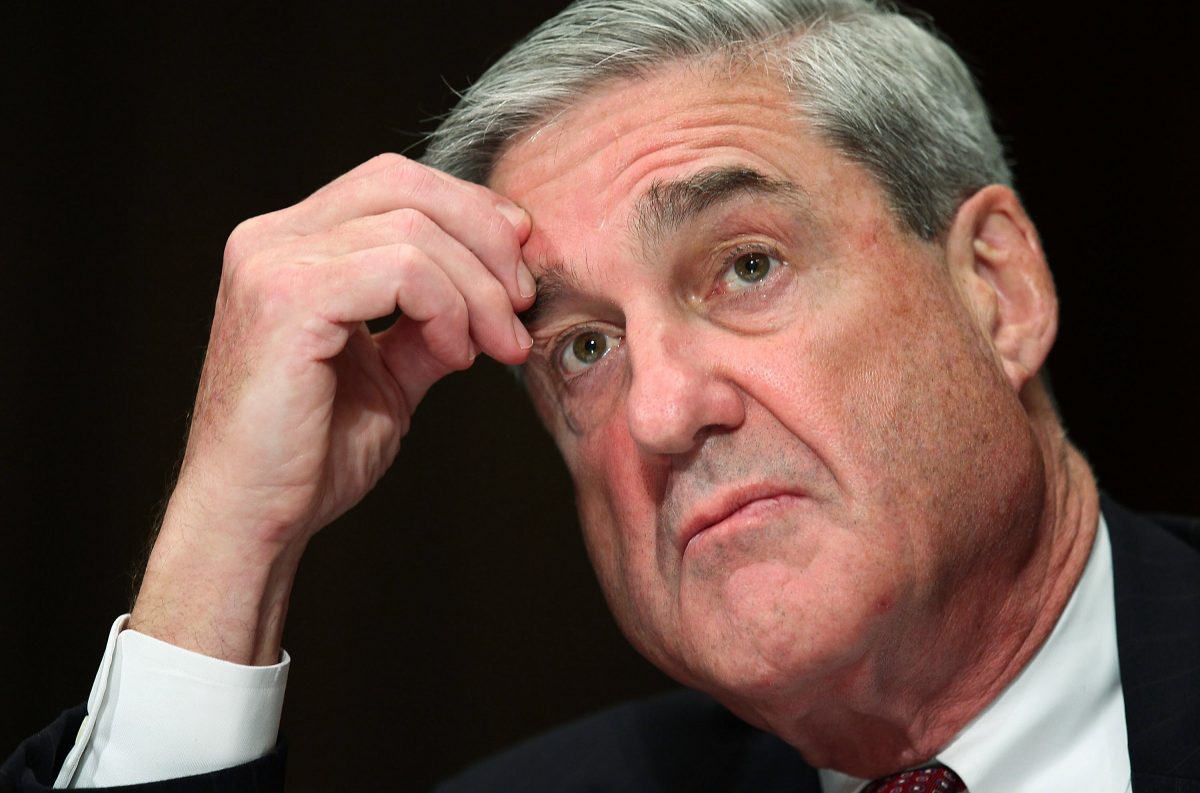
Attorneys for an alleged component of Russian trolling efforts during the 2016 presidential election are demanding that special counsel Robert Mueller be forced to reveal the grand jury instructions used in count one of the government’s indictment against Concord Management and Consulting LLC.
The nine-page motion (plus supporting documents) filed with the U.S. District Court for the District of Columbia relies upon Federal Rule of Criminal Procedure 6(e)(3)(E)(ii) which provides:
The court may authorize disclosure—at a time, in a manner, and subject to any other conditions that it directs—of a grand-jury matter…at the request of a defendant who shows that a ground may exist to dismiss the indictment because of a matter that occurred before the grand jury.
The motion further specifies that Concord Management is requesting a private “inspection of the legal instructions provided to the grand jury regarding Count One of the Indictment…in order to determine whether the instructions provided could support a motion to dismiss Count One of the Indictment.”
Concord’s argument is that Mueller failed to include a necessary knowledge requirement in count one of the indictment against Concord Management and other Russian entities and therefore, may need to be dismissed. (A knowledge requirement refers to intent or knowledge of criminal wrongdoing. Thus, an allegedly offending party would have knowledge of the criminality they’re alleged to have engaged in.) The motion notes, “violations of the relevant federal campaign laws and foreign agent registration requirements administered by the DOJ and the FEC require the defendant to have acted ‘willfully,’ a word that does not appear anywhere in Count One of the Indictment.”
The motion continues, “As such, Count One of the Indictment appears to be facially invalid because it fails to charge an essential element of the offense of conspiracy to defraud the United States by impairing, obstructing and defeating the functions of the FEC and the DOJ, that is, that the Defendant acted willfully, in this case meaning that Defendant was aware of the FEC and FARA requirements, agreed to violate those requirements, and ultimately acted with intent to violate those requirements.”
Concord Management’s Monday motion contains at least one reference to U.S. case law where similar indictments were dismissed because they failed to adequately track statutory language. In other words, Concord Management is arguing that Mueller and his army of attorneys charged Concord Management (and other Russian entities) with a vague-sounding “crime” that isn’t actually a crime.
In fact, Concord Management’s motion explicitly says as much, claiming, “[T]he DOJ never brought any case like the instant Indictment, that is, an alleged conspiracy by a foreign corporation to ‘interfere’ in a Presidential election by allegedly funding free speech. The obvious reason for this is that no such crime exists in the federal criminal code.”
Because Mueller’s indictment was apparently sloppy (or intentionally vague) in this regard, Concord Management is asking the court to inspect the language of the grand jury instructions–with the hope that the court agrees the indictment actually failed to include all of the elements of the crime charged. As the motion notes, under U.S. law, indictments must contain all such elements.
The motion also takes some rhetorical license to savage Mueller’s mandate and his apparent focus on private Russian businesses. A representative section reads, in relevant part:
[T]he Deputy Attorney General acting for the recused Attorney General has rejected the history and integrity of the DOJ, and instead licensed a Special Counsel who for all practical political purposes cannot be fired, to indict a case that has absolutely nothing to do with any links or coordination between any candidate and the Russian Government. The reason is obvious, and is political: to justify his own existence the Special Counsel has to indict a Russian – any Russian.
The footnotes also contain a sarcastic reference to “Casablanca” and increase the rhetorical reach of Concord’s potshots at Mueller’s initial indictment.
One such footnote alleges, “Count One of the Indictment is devoid of any specificity about what any officer or employee of Concord actually did other than to generally allege that Concord funded an ‘Organization’ that the Special Counsel imagined and created.” Ouch.
[image vis Alex Wong/Getty Images]